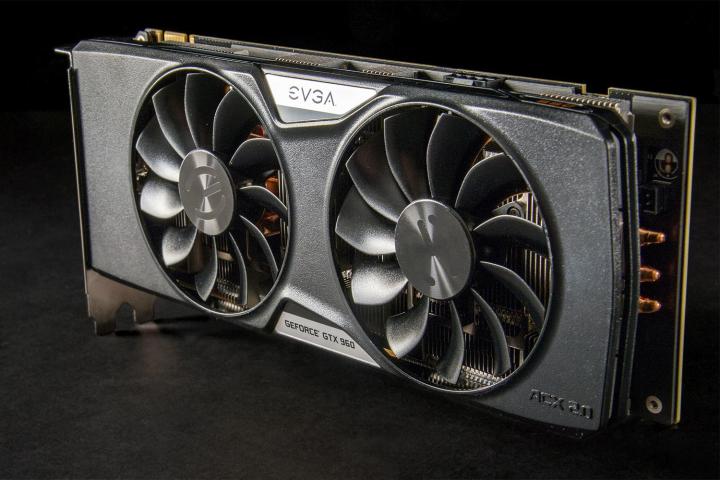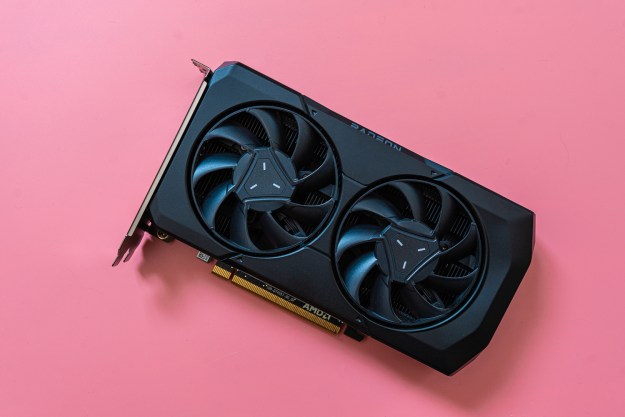
That didn’t deter PC Perspective, however. The site decided to round up 13 GTX 960 cards from three manufacturers to take a closer look at just how far the card can be pushed, and it turns out Nvidia wasn’t lying. The best card hit a maximum stable maximum Boost clock of 1,576MHz, a 33 percent improvement over the base clock of 1,178 MHz. Even the slowest card managed to climb above 1,500MHz, and the median over-clock came in at 1,542MHz.
Related: Check out our complete GTX 960 review
You might expect high clocks to push the thermals of each card to the limit, but that’s not the case. The hottest cards, from EVGA, hit a maximum sustained temperature of 75 degrees Celsius. A bit warm? Perhaps. But there are stock video cards that run hotter, and most GPUs don’t encounter trouble unless temperatures rise above 90 degrees.
The large increase in maximum Boost speed results in a smaller increase in overall game performance, as Metro: Last Light ran about 12 percent quicker when on an over-clocked GTX 960 than on a stock model. That’s not a night-and-day difference, but this essentially free increase of over 10 percent closes roughly half the gap between the 960 and its second-biggest brother, the GTX 970.
Readers should note, as with any over-clocked hardware, that results are not guaranteed. You could purchase a GTX 960 and see far less impressive gains. The fact PC Perspective checked 13 cards makes that event less likely, however, as it reduces the chance of one particularly good sample throwing off the results.
Editors' Recommendations
- Nvidia RTX 50-series graphics cards: news, release date, price, and more
- Nvidia just fixed a major issue with its GPUs
- Nvidia’s peace offering isn’t working
- Nvidia’s RTX 4060 might not be such a disappointment after all
- Nvidia’s most important next-gen GPU is less than 2 weeks away



